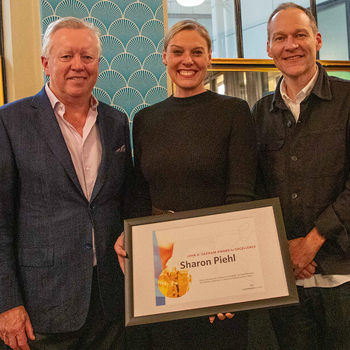Projecting South Africa’s Future – What Will S.A. Look Like in Twenty Years?
I recently attended a conference – Projecting the Future: Two Decades Ahead – South Africa in 2034 – I was particularly excited about attending, as it spoke to my academic background and first love of international relations and economic development.
However, in the days leading up to my attending, I really started to wonder what South Africa’s economic forecast would look like in twenty years and I couldn’t help but start to feel a little anxious given the recent doom and gloom that has been covering our media outlets.
While the general perceptions stemming from the speakers were largely negative, positive tangible action points were made towards turning the economy around.
Firstly, let’s address the key concerns.
South Africa is falling into a middle income trap. Whilst many South Africans went into panic mode after learning that Nigeria had become Africa’s largest economy, Dr Miriam Altman (Head of Strategy at Telkom) noted that yes, Nigeria’s economy, which is oil based, might have grown, but their poverty level has also increased by 200%.
So what does this mean for us? Because South Africa is a resource-based economy, we need to look at expanding other sectors in order to ease reliance on natural resources; and look towards building a skills-based economy.
Another area of discussion which I found to be particularly interesting was around the National Development Plan (NDP) and its main goals of achieving social economic transformation. As I listened to Mr Mathe speak (Acting Head of the National Planning Commission), one could not argue how the points he made would not be desirable for every South African:
– Lowering unemployment to less than 6%
– Ensuring every South African has access to a decent standard of living
– And aim to grow the economy by 5% over the next ten years.
However, as Mr Mathe pointed out, in order to obtain these goals, we need to identify the current problems that are hindering us from becoming the economic powerhouse that we so desperately want to be.
While many of the speakers had differing opinions as to how South Africa would reach its goals and whether or not these goals were realistic, or attainable – everyone, no matter their corporate background or government affiliation, all agreed that developing the South African education sector was the key factor to transforming our society – and to be frank, it doesn’t matter if you have all the natural resources in the world, you need the talent to develop it.
Although there was not one clear vision as to where South Africa would be in the next twenty years, the overarching theme was pragmatism and better reputation management; whether it is the government, corporate, or the individual, we need to be more positive as a society and make conscious decisions to make a change, to want to change.
With all the current political and economic changes, as well as our recent credit down-grading, South African corporates and government need to re-align their communication strategies in order to combat any further negativity.
I, for one, am anxious to see how the South African economy will play out over the next few months, if not years.
Written by Sasha Franicevic
Find Out More
-
Mandela Day 2025 - Leaving a Mark That Matters
July 23, 2025
-
Digital Insights Bulletin - October 2024
October 31, 2024
-
Sharon Piehl Wins 32nd Annual John D. Graham Award for Excellence
October 25, 2024


